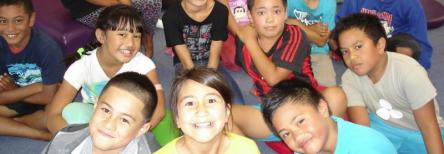5. Building genuine reciprocal relationships

Mangere Central School teachers believe that nurturing and caring are at the heart of successful learning, so a key driver for them is building reciprocal coaching relationships throughout the school community. This occurs with parents as kaiako, with community as supporters, with each other in the practice of leadership, with and between students as tuakana-teina-learning buddies.
School leaders know this is not just necessary for the students’ learning but for the teachers’ learning as well. Year 2 team leader Vasati Start explains:
Nurturing, caring and learning from each other has been built up through our Professional Learning Groups. The trust we’ve developed means we’ve been able to engage in critical challenging talk with teachers because we’ve modeled this between ourselves as leaders.
Coaching each other has helped leaders to deepen their dialogue. They are not afraid to challenge each other and even create opportunities for challenges to take place. They use co-constructed prompts and tools to pose critical questions. They observe one another in their leadership and in their teaching. They set specific areas for feedback. They reflect deeply on their leadership for learning practice. They notice and challenge any deficit, non-agentic language.
Year 3/4 team leader Ruth Mountney elaborates on the initial challenges she faced a team leader:
My biggest challenge in the beginning was to develop strategies to deal with my team’s deep-rooted deficit thinking. We made an audio recording of a team meeting and analysed the transcript during a leader coaching session. I took this analysis back to my team and we did some professional reading. I used Hattie’s research to help teachers recognise their responsibility as professionals to take ownership of our children’s learning. But also, teachers felt empowered knowing what they do between 9 and 3 does make a difference! Sometimes it still rears its ugly head, but now I have strategies to address this.
Teachers know where the students should be, have a better understanding of how to get them there and focus more on good practice and good teaching. They fully believe they will succeed in addressing inequities of achievement in their school. Expectations are high.
